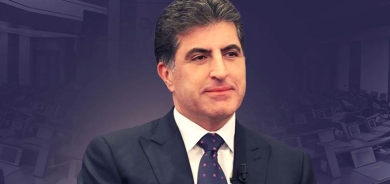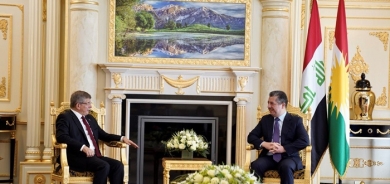Yemen amends draft law granting immunity to Saleh, but he is still protected

The draft law, which has been heavily criticized by rights groups, the United Nations and Yemeni protesters, will now shield the aides only in “political cases”, Legal Affairs Minister Mohammed Makhlafi told Reuters.
It had previously offered blanket immunity to associates of Saleh, who will still get full protection himself, Makhlafi said, without elaborating on what kinds of cases could be tried, according to Reuters.
Under a power transfer plan hammered out by Yemen’s wealthier Gulf neighbors and signed by Saleh in November, the veteran leader was promised legal immunity to help ease him out of office and end months of protests against his 33-year rule.
Rights groups say hundreds of protesters were killed by security forces in the uprising, which was punctuated by bursts of street fighting between Saleh loyalists and their foes.
Yemenis angry at the draft law are still taking to the streets calling for Saleh to be put on trial and U.N. human rights chief Navi Pillay earlier this month warned the immunity offer could violate international law.
Discussion of the law in parliament has repeatedly been put off, but Makhlafi said it would now take place on Saturday.
The United States has defended the draft law as the only way to coax Saleh from power, but question remain over his intentions after he reversed a pledge to leave Yemen before presidential elections in February.
Washington and neighboring oil giant Saudi Arabia are keen for the plan to work, fearing protracted political upheaval will let al-Qaeda’s regional Yemen-based wing establish a foothold along oil shipping routes through the Red Sea.
Islamist militants this week seized the town of Radda, about 170 km (100 miles) southeast of the capital Sana’a, underscoring those concerns.
A tribesman negotiating with the militants on behalf of the government said their leader, Tareq al-Dahab, had refused to withdraw unless a council was set up to run the town according to Islamic law and 15 prisoners suspected of links to al-Qaeda were released, including his brother Nail.
Dahab is related to Anwar al-Awlaki, a U.S. citizen whom Washington accused of a leadership role in the Yemeni branch of al-Qaeda, and assassinated in a drone strike last year.
The tribesman, Sheikh Sale al-Jawfi, said Islamism fighters from Aryan and Shaw provinces had made their way to Radar to join militant ranks, adding that armed tribesmen were taking up positions in another part of the town.
Sale’s opponents have accused him of deliberately ceding territory to Isalmists to prove his argument that only he stands in the way of an al-Qaeda takeover in Yemen, from where the global militant network has previously launched abortive attacks.
The head of the parliamentary bloc representing Saleh’s party said on Wednesday said that presidential elections set for next month in Yemen will take place on time, according to AFP.
“The elections will take place on time as we are exerting all efforts to make sure it takes place as scheduled,” said Sultan al-Barakani, head of the General People’s Congress parliamentary bloc.
“But if the security situation worsens, this might be an obstacle,” Barakani told reporters.
Foreign Minister Abu Bakr al-Qurbi has warned that insecurity resulting from months of mass protests and political unrest could delay presidential elections planned for next month.
“If we don’t deal with the security challenges... it might be difficult to hold elections (as scheduled) on February 21,” Qurbi said in an interview with Al Arabiya on Tuesday.
Qurbi, meanwhile, has affirmed to 26sep.net that “the unity government is committed to organizing the presidential election on time without any delay in accordance with the Gulf initiative and its roadmap,” it reported.
On Tuesday, U.S. Secretary of State Hillary Clinton expressed concern over the apparent slippage in the transition timetable.
“We regret that the president has yet failed to comply with his own commitment to leave the country and to permit elections,” Clinton said.
State news agency Saba reported Wednesday that Qurbi met the U.N. envoy to Yemen, the U.S. ambassador and the head of the EU delegation, all of whom affirmed the importance of “moving ahead with the Gulf initiative” and its timetable.
The GPC “signed the Gulf initiative when the security situation was worse than it is now. There is no excuse to postpone elections now,” said MP Mohammed al-Hazmi from the Islamist al-Islah (reform), the largest opposition party.
(Reuters)













